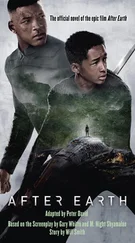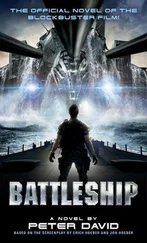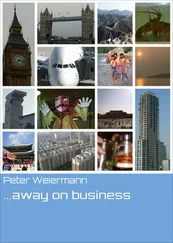David Malouf - Fly Away Peter
Здесь есть возможность читать онлайн «David Malouf - Fly Away Peter» весь текст электронной книги совершенно бесплатно (целиком полную версию без сокращений). В некоторых случаях можно слушать аудио, скачать через торрент в формате fb2 и присутствует краткое содержание. Год выпуска: 1999, Издательство: Vintage, Жанр: Современная проза, на английском языке. Описание произведения, (предисловие) а так же отзывы посетителей доступны на портале библиотеки ЛибКат.
- Название:Fly Away Peter
- Автор:
- Издательство:Vintage
- Жанр:
- Год:1999
- ISBN:нет данных
- Рейтинг книги:3 / 5. Голосов: 1
-
Избранное:Добавить в избранное
- Отзывы:
-
Ваша оценка:
- 60
- 1
- 2
- 3
- 4
- 5
Fly Away Peter: краткое содержание, описание и аннотация
Предлагаем к чтению аннотацию, описание, краткое содержание или предисловие (зависит от того, что написал сам автор книги «Fly Away Peter»). Если вы не нашли необходимую информацию о книге — напишите в комментариях, мы постараемся отыскать её.
Fly Away Peter — читать онлайн бесплатно полную книгу (весь текст) целиком
Ниже представлен текст книги, разбитый по страницам. Система сохранения места последней прочитанной страницы, позволяет с удобством читать онлайн бесплатно книгу «Fly Away Peter», без необходимости каждый раз заново искать на чём Вы остановились. Поставьте закладку, и сможете в любой момент перейти на страницу, на которой закончили чтение.
Интервал:
Закладка:
‘I can walk,’ the boy said with sudden belligerence.
‘All right, keep y’ shirt on! I only asked.’
Next evening, after a day of anxious preparation, of cleaning and checking their kit and simply hanging about waiting, they made their way into the lines.
12
OFTEN, AS JIM later discovered, you entered the war through an ordinary looking gap in a hedge. One minute you were in a ploughed field, with snowy troughs between ridges that marked old furrows and peasants off at the edge of it digging turnips or winter greens, and the next you were through the hedge and on duckboards, and although you could look back and still see farmers at work, or sullenly watching as the soldiers passed over their land and went slowly below ground, there was all the difference in the world between your state and theirs. They were in a field and very nearly at home. You were in the trench system that led to the war.
But at Armentières, on that first occasion, you came to the war from the centre of town. Crossing Half-past Eleven Square (it was called that because the Town Hall clock had stopped at that hour during an early bombardment; everything here had been renamed and then named again, as places and streets, a copse, a farmhouse, yielded up their old history and entered the new) you turned left and went on across Barbedwire Square till you came to a big red building called the Gum-boot Store. There, after being fitted out with rubber boots that went all the way to mid-thigh, and tramping about for a few minutes to get used to the things, you were led away into the grounds of another, larger building, this time of brick, that was an Asylum; and from there, via Lunatic Lane, into the lines. Lunatic Lane began as a cobbled street, then became dirt, and before you quite knew it you were on planks. From this point the duckboards, for all their twisting and turning, led straight to the war.
They began to move up just at dusk, and by the time night fell and the first flares became visible, throwing their yellow glare on the underside of clouds and falling at times in a shower of brilliant stars, they were in the support line, stumbling in the dark through a maze of communication trenches, round firebays and traverses, jostling water-bottles, messtins, entrenching tools, grunting with the effort of trying to keep up, and quite blind except for the warning passed back from man to man of a hole up ahead in the greasy duckboards — But where? How far? Am I almost on it ? — or a wire obstacle overhead.
The deeper they went the worse it got. In places where seepage was bad the duckboards were a foot under water. Once a whole earthwall had fallen and the passage was so narrow they could barely squeeze through: the place had been hit by a ‘minnie’. They met two stretcher bearers moving in the opposite direction with a man who screamed, and some of the moisture, Jim thought, as they brushed in passing, must be blood. They hurried to keep up with the man in front and were soon breathless and sweating, partly because of the cracking pace that was being set — the men up front must actually have been running — but also because they were so keyed-up and eager to get there at last and see what it was. Everything here was so new, and they didn’t know what might happen next, and when it did happen, how they would meet it. There was no stopping. If a man paused to adjust his pack or got his rifle caught in an overhead entanglement the whole troop might take a wrong turning and be lost in the dark.
The smell too got worse as they pushed further towards it. It was the smell of damp earthwalls and rotting planks, of mud impregnated with gas, of decaying corpses that had fallen in earlier battles and been incorporated now into the system itself, occasionally pushing out a hand or a booted foot, all ragged and black, not quite ingested; of rat-droppings, and piss, and the unwashed bodies of the men they were relieving, who also smelled like corpses, and were, in their heavy-eyed weariness as they came out, quite unrecognizable, though many of them were known to Jim by sight and some of them even by name; the war seemed immediately to have transformed them. They had occupied these trenches for eleven days. ‘It’s not so bad,’ some of them mumbled, and others, with more bravado, claimed it was a cakewalk. But they looked beaten just the same.
They stayed eleven days themselves, and though the smell did not lessen, they ceased to notice it; it was their own. They were no longer the ‘Eggs a-cook’ of the easy taunt: ‘Verra nice, verra sweet, verra clean. Two for one.’ They were soldiers like the rest. They were men.
For eleven days they dug in and maintained the position. That is, they bailed out foul water, relaid duckboards, filled and carried sandbags to repair the parapet, stood to for a few minutes just before dawn with their rifles at the ready, crouched on the firestep, waiting — the day’s one recognition of the reality of battle — then stood down again and had breakfast. Some days it rained and they simply sat in the rain and slept afterwards in mud. Other days it was fine. Men dozed on the firestep, read, played pontoon, or hunted for lice in their shirts. They were always cold and they never got enough sleep. They saw planes passing over in twos and threes, and occasionally caught the edge of a dogfight. Big black cannisters appeared in the sky overhead, rolling over and over, very slowly, then taking a downward path; the earth shook. You got used to that, and to the din.
Jim never saw a German, though they were there alright. Snipers. One fellow, too cocky, had looked over the parapet twice, being dared, and had his head shot off. His name was Stan Mackay, and it worried Jim that he couldn’t fit a face to the name even when Clancy described the man. He felt he ought to be able to do that at least. A fellow he had talked to more than once oughtn’t to just go out like that without a face.
Snipers. Also machine-gunners.
One of them, who must have had a sense of humour, could produce all sorts of jazz rhythms and odd syncopations as he ‘played’ the parapet. They got to know his touch. Parapet Joe he was called. He had managed, that fellow, to break through and establish himself as something more than the enemy. He had become an individual, who had then of course to have a name. Did he know he was called Parapet Joe? Jim wondered about this, and wondered, because of the name, what the fellow looked like. But it would have been fatal to try and find out.
One night, for several hours, there was a bombardment that had them all huddled together with their arms around their heads, not just trying to stop the noise but pretending, as children might, to be invisible.
But the real enemy, the one that challenged them day and night and kept them permanently weary, was the stinking water that seeped endlessly out of the walls and rose up round their boots as if the whole trench system in this part of the country were slowly going under. Occasionally it created cave-ins, bringing old horrors back into the light. The dead seemed close then; they had to stop their noses. Once, in heavy rain, a hand reached out and touched Jim on the back of the neck. ‘Cut it out, Clancy,’ he had protested, hunching closer to the wall; and was touched again. It was the earth behind him, quietly moving. Suddenly it collapsed, and a whole corpse lurched out of the wall and hurled itself upon him. He had to disguise his tendency to shake then, though the other fellows made a joke of it; and two or three times afterwards, when he dozed off, even in sunlight, he felt the same hand brush his neck with its long curling nail, and his scalp bristled. Once again the dead man turned in his sleep.
Water was the real enemy, endlessly sweating from the walls and gleaming between the duckboard-slats, or falling steadily as rain. It rotted and dislodged A-frames, it made the trench a muddy trough. They fought the water that made their feet rot, and the earth that refused to keep its shape or stay still, each day destroying what they had just repaired; they fought sleeplessness and the dull despair that came from that, and from their being, for the first time, grimily unwashed, and having body lice that bred in the seams of their clothes, and bit and itched and infected when you scratched; and rats in the same field-grey as the invisible enemy, that were as big as cats and utterly fearless, skittering over your face in the dark, leaping out of knapsacks, darting in to take the very crusts from under your nose. The rats were fat because they fed on corpses, burrowing right into a man’s guts or tumbling about in dozens in the bellies of horses. They fed. Then they skittered over your face in the dark. The guns, Jim felt, he would get used to; and the snipers’ bullets that buried themselves regularly in the mud of the parapet walls. They meant you were opposed to other men, much like yourself, and suffering the same hardships. But the rats were another species. And for him they were familiars of death, creatures of the underworld, as birds were of life and the air. To come to terms with the rats, and his deep disgust for them, he would have had to turn his whole world upside down.
Читать дальшеИнтервал:
Закладка:
Похожие книги на «Fly Away Peter»
Представляем Вашему вниманию похожие книги на «Fly Away Peter» списком для выбора. Мы отобрали схожую по названию и смыслу литературу в надежде предоставить читателям больше вариантов отыскать новые, интересные, ещё непрочитанные произведения.
Обсуждение, отзывы о книге «Fly Away Peter» и просто собственные мнения читателей. Оставьте ваши комментарии, напишите, что Вы думаете о произведении, его смысле или главных героях. Укажите что конкретно понравилось, а что нет, и почему Вы так считаете.












